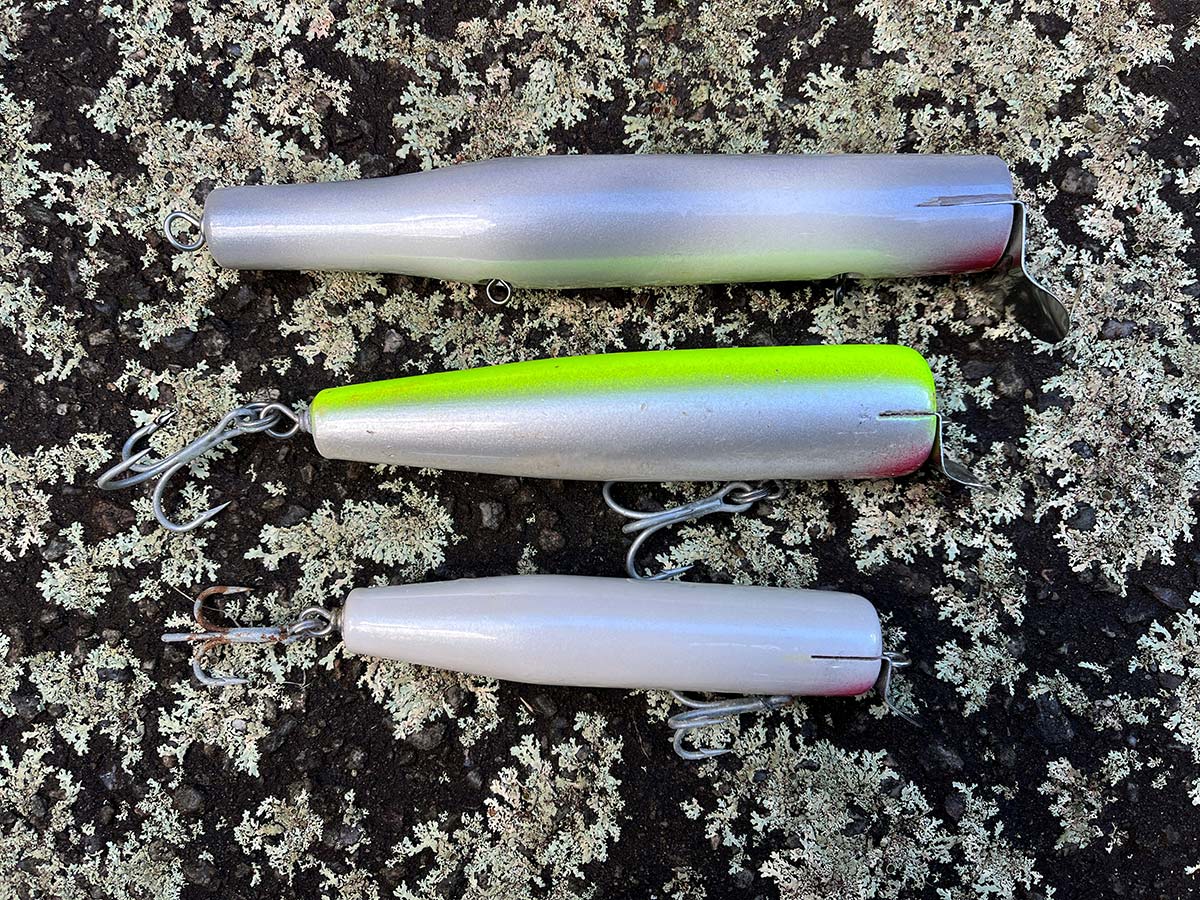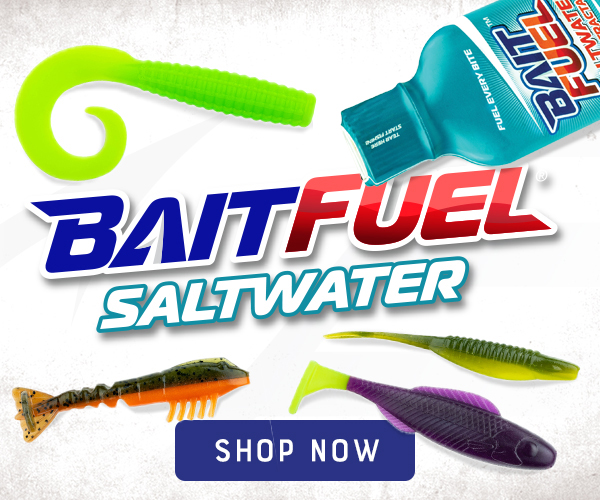
The original deep-running metal lip swimmer and how it came to be.
The Conrad is what many would likely call a ‘niche plug,’ meaning it’s not something that is going to be used every trip, but its unique ability to swim to depths that most other plugs of its size and composition can’t even come close to makes it a valuable addition to any surf bag.
Surfcasting history states that Danny Pichney designed the Conrad back in the 1960s for Cape Cod surfcaster Conrad Malicoat, who wanted a heavier metal lip to cast on conventional tackle with the hope of reaching some offshore rips along the Cape and to swim at a greater depth. It didn’t take long before the Conrad became a must-have plug from Cape Cod to Cape May. The fact that Danny Pichney would go on to design at least three sizes of the Conrad (Senior, Junior and Peanut) lets us all know that it was a most effective plug.
The plug itself is a pretty uncomplicated shape; it’s basically a baseball bat without the knob at the end of the handle. but the way that Danny achieved his goal of making the plug dive is what’s really interesting about this historic wooden lure. The first important detail is that the plug is made of maple, which is a heavier wood that is already easier for the lip to pull under the water. Of course, as with nearly all metal lip swimmers, Danny strategically added weight, but instead of placing the weight right on the natural balance point of the plug, Danny moved it forward just a little bit, which pitches the plug forward ever-so-slightly, encouraging the plug to dive. The last innovation is that the lip features slightly curled edges which tightens the action, adding stability in faster water.
The senior measures 7-1/2 inches and weighs in around 4 ounces. This plug has been known to hook some very large striped bass. One notable thing about it is that it really needs to be reeled very, v-e-r-y slowly, otherwise it can roll out or just not achieve its full depth potential. This very slow retrieve produces a slow, lumbering action that seems to drive large bass crazy. It was (and is) a very popular plug for fitting with an eel skin; once again, that slow, plodding swim is only accentuated by the skin and that skin-adorned Conrad draws a lot of looks from big bass.
The Junior and Peanut sizes use the same physics to achieve their depth, but the length is shorter compared to the width, making these sibling versions portlier than their svelte older brother. Neither smaller size can reach the depths of the senior, but the more compact design is more versatile and much more stable, making it possible to fish them at speeds above a painful crawl, and they are also capable of navigating stronger currents without rolling over.
The Conrad is such an effective style of plug because it swims at the depths of so many of the striper’s main forage species. If you ever dove around a jetty or in a boulder field (or watched videos of divers filming inshore waters), what’s the main thing you notice about all of the juvenile bottom species you see? That’s right, they stay pretty well glued to the bottom or tight to the base of any nearby structure. Most of the other plugs we use aren’t able to replicate this, but the Conrad can.
Of course the original Conrads are no longer being made, Danny Pichney passed away more than 30 years ago, but there are builders up and down the coast that are keeping his tradition alive by making these awesome plugs in small, custom batches. Also, Beachmaster still cranks out batches of Conrads here and there as well. I guess we can all thank Conrad Malicoat for dreaming up the idea that inspired Danny to design and perfect his namesake plug. Next time you find yourself plugging a jetty or fishing a deep boulder field, snap a Conrad on and relive history.




